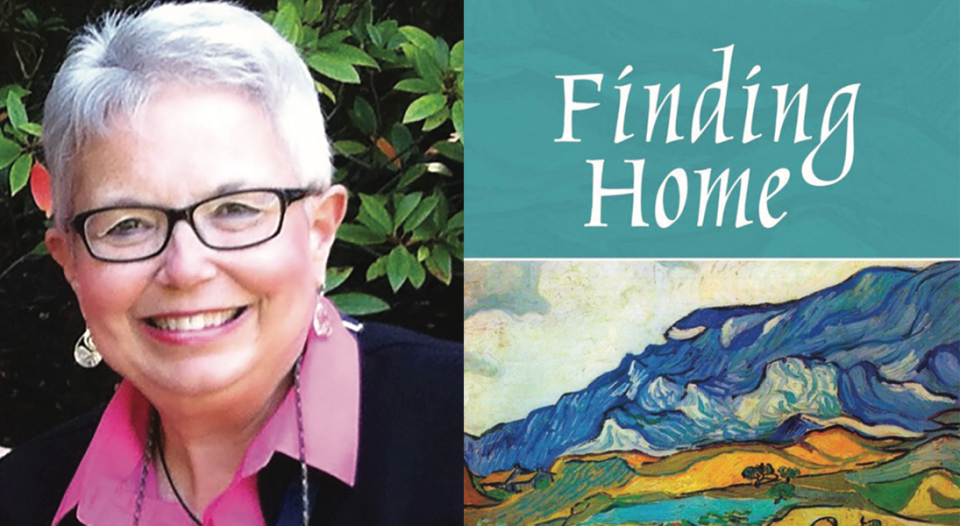For most of us, the concept of home is complex. In Finding Home (Cascade Books, 2020), author Julie K. Aageson reflects on the physical, spiritual and metaphorical meanings of home. She explores the idea from a variety of perspectives, including those of refugees and adoptees but also of finding home in our bodies, finding home on Earth, finding home in God and God finding home in us.
Living Lutheran spoke with Aageson, former coordinator of ELCA resource centers, about the themes of her book.
Living Lutheran: Could you tell us about Finding Home?
Aageson: When the pandemic came roaring into our lives a year ago, little did we know that finding home might become, to be perfectly frank, both blessing and curse. After sheltering at home for months on end, those fortunate enough to have homes know that even the welcome haven of home can become oppressive.
Of course, I had no idea as I was writing Finding Home that a worldwide virus would turn our lives upside down and send us all running for home. Even so, I hope the themes I seek to address—a lifelong quest to make meaning of our common longing to “find home” and all that home might mean—will somehow resonate, no matter our current circumstances, perhaps even because of our current circumstances.
What got you interested in the idea of exploring what home means?
Let me count the ways! Do you remember, as a child, being homesick? … What I remember on many of those occasions was a visceral sense of pining for the security of my own home, the comfort of familiarity, the presence of my family.
I also have spent a lot of time creating homes in many different places, something I find enormously satisfying. This making of home has always been about security and identity. But home, of course, is so much more than the physical edifices we need for shelter and protection.
Home, in all its iterations, defines who we are and what it is that gives our lives meaning.
Finding home is existential. Home, in all its iterations, defines who we are and what it is that gives our lives meaning. And so, for me, writing Finding Home was an opportunity to explore some of the many meanings and experiences of home. I paid attention to the stories of refugees and immigrants. I tried to understand the sense of loss for people who are “homeless.” I listened to what home might mean for one who is adopted and to voices from the Middle East, where home seems endlessly elusive. I wrote about finding my political moorings. I wanted to think about our earth home, what it means to be shelter for each other, and the struggle to accept one’s body or to live with mental or physical illness.
I hoped to convey something of the mystery of being made in the image of God, finding home in imago Dei (God’s image). So, in addition to writing about physical homes and literal places, Finding Home also considers spiritual and metaphorical notions of home, home as a state of being, home as a measure of our very existence.
You call finding home “a radical act of claiming a place in the world.” Could you explain that a bit?
Whether marking our place in the community or country where we live or discovering home deep within ourselves, all of us need to claim the places where we belong, where we plant ourselves, where we are connected to the very ground beneath our feet. But home is also a state of mind as we learn to be at home with ourselves and at home away from home, out in the world.
Each chapter ends with reflection questions. How do you hope readers will utilize the book?
Finding Home is dedicated to my grandchildren. My hope for each of them is to know the deep pleasure of finding and knowing home while learning to be at home with themselves, knowing both rootedness and the security of belonging. But I also wish for them to discover home away from home and what it means to be at home in many places. In all these ways, I hope they will see the world and themselves through the eyes and heart of God, the Holy One. I want them to find home where God dwells.
That is the underlying hope of each of the reflections in Finding Home: to discover and rediscover the presence of the Holy One as the defining lens through which we see God, ourselves and the world around us. I hope for readers to know themselves to be God’s home, God’s dwelling place. I hope for all of us to know that we ourselves are houses where God lives and that even when we choose to run away—see the chapter titled “Runaway Bunny”—we are pursued by a loving parent: a gracious God who is indeed our true home, who, in spite of ourselves, will not let us go. I hope readers will find home in Finding Home.





